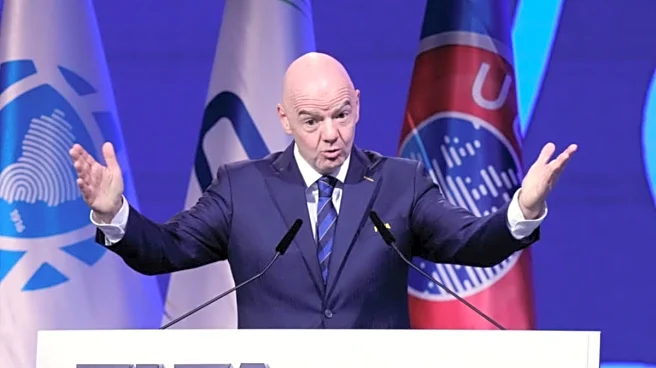FIFA President Gianni Infantino has urged the football world to keep an “open mind” about when future World Cups should be staged, as global temperatures and packed fixture calendars force the governing body to rethink its traditional timelines.
The men’s World Cup has almost always been played in June and July, coinciding with the off-season for most major leagues in the northern hemisphere.
However, the 2022 edition in Qatar broke that long-standing tradition, shifting to November and December to avoid the Gulf nation’s extreme summer heat.
The unprecedented move caused a global scheduling ripple: forcing leagues to pause mid-season and sparking heated debate.
Climate and Calendar Challenges
Speaking at the European Football Clubs’ (EFC) General
Assembly in Rome, Infantino said FIFA must adapt to growing climate challenges and the diverse weather conditions across the globe.
“It’s not just about one World Cup, it’s a general reflection,” Infantino said. “Even to play in some European countries in July is very, very hot, so maybe we have to think.
“We have summer and winter and, in the world, if you want to play at the same time everywhere, you can play in March or in October. In December you cannot play in one part of the world and in July you cannot play in another part.
“We need to consider all these elements and see how we can make it better for everyone. Maybe there are ways we can optimise the calendar. We are discussing — we have to have an open mind.”
Locked Calendar, Future Flexibility
While Infantino’s comments point to growing flexibility within FIFA, any radical change remains a distant possibility. The current International Match Calendar (IMC) is set until 2030, leaving little room for immediate alterations.
Saudi Arabia — the only confirmed bidder for the 2034 World Cup — is expected to host the event, becoming just the second Middle Eastern nation to stage football’s biggest tournament after Qatar. Given the kingdom’s desert climate, another winter World Cup could be inevitable.
Heat Risks for 2026 and Beyond
Next year’s World Cup — co-hosted by the United States, Canada, and Mexico — will return to the traditional June-July slot. However, a recent climate report found that 10 of the 16 host cities face a “very high risk” of extreme heat stress conditions during that period.
The 2030 tournament, which will be spread across six countries on three continents — Spain, Portugal, Morocco, Uruguay, Argentina, and Paraguay — also poses major logistical and environmental challenges.
For now, the world’s most-watched sporting event will stay locked in its traditional summer window — but the heat, quite literally, is rising.
(with Reuters inputs)


/images/ppid_59c68470-image-177087759367465250.webp)
/images/ppid_59c68470-image-177087755961297300.webp)

/images/ppid_59c68470-image-177088006764060508.webp)

/images/ppid_59c68470-image-177088005593010534.webp)




/images/ppid_a911dc6a-image-177087824073342835.webp)

/images/ppid_a911dc6a-image-177087764837521863.webp)
/images/ppid_a911dc6a-image-177087757876223393.webp)
/images/ppid_a911dc6a-image-17708775426287391.webp)